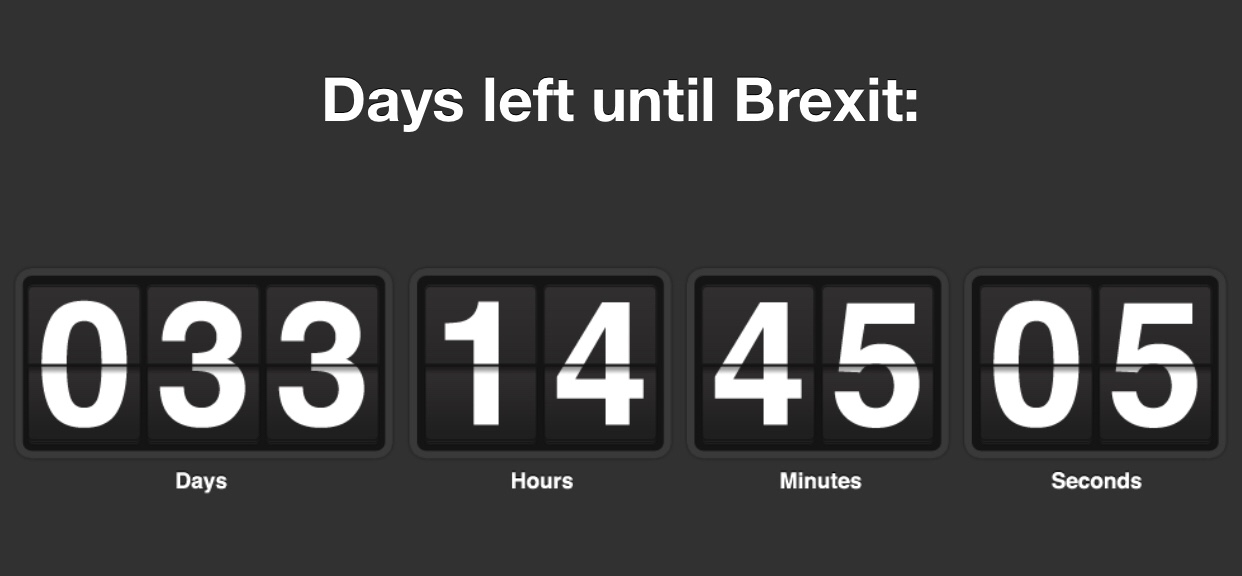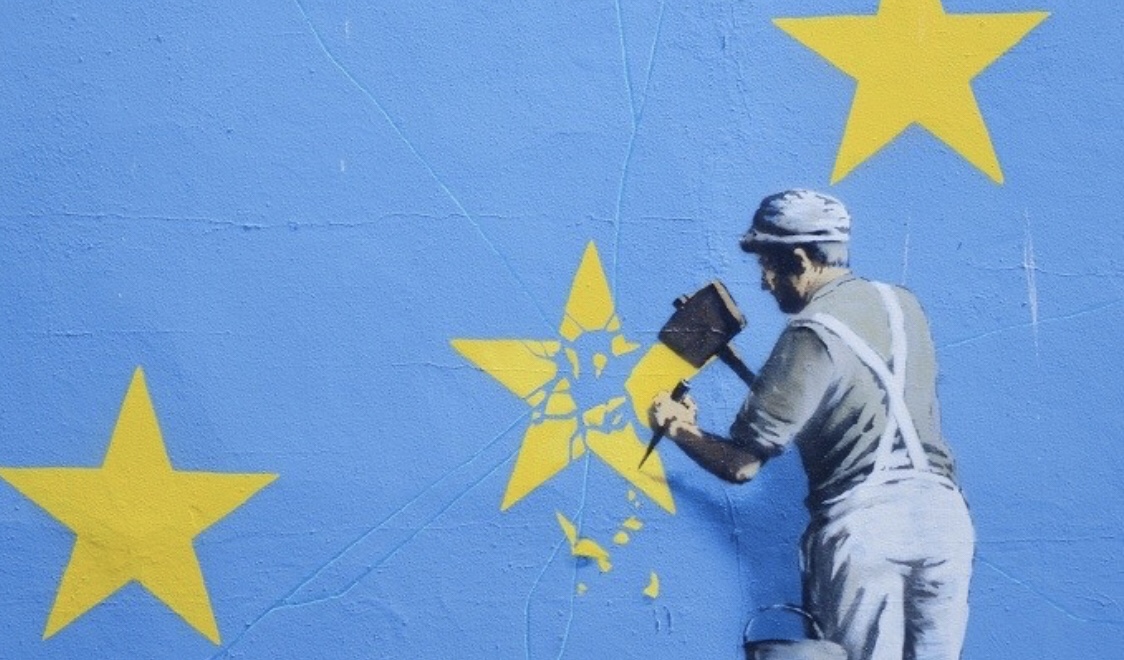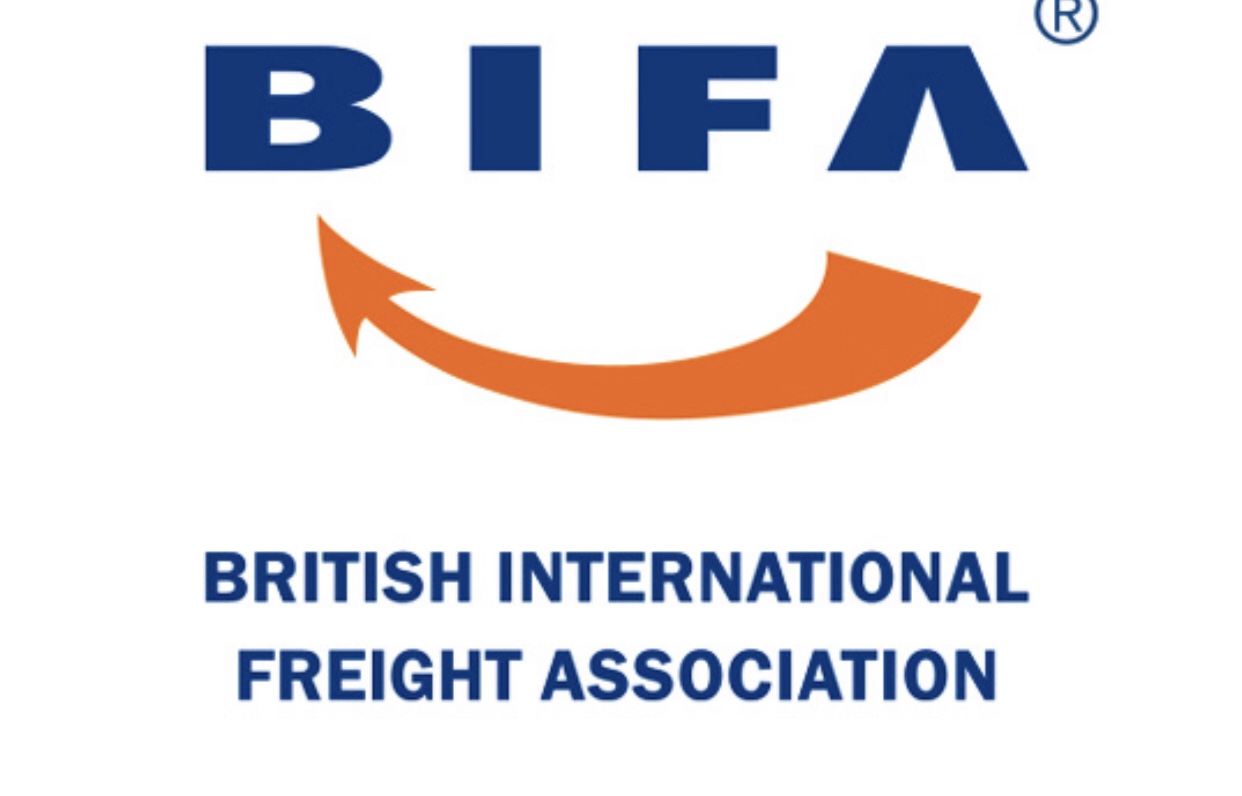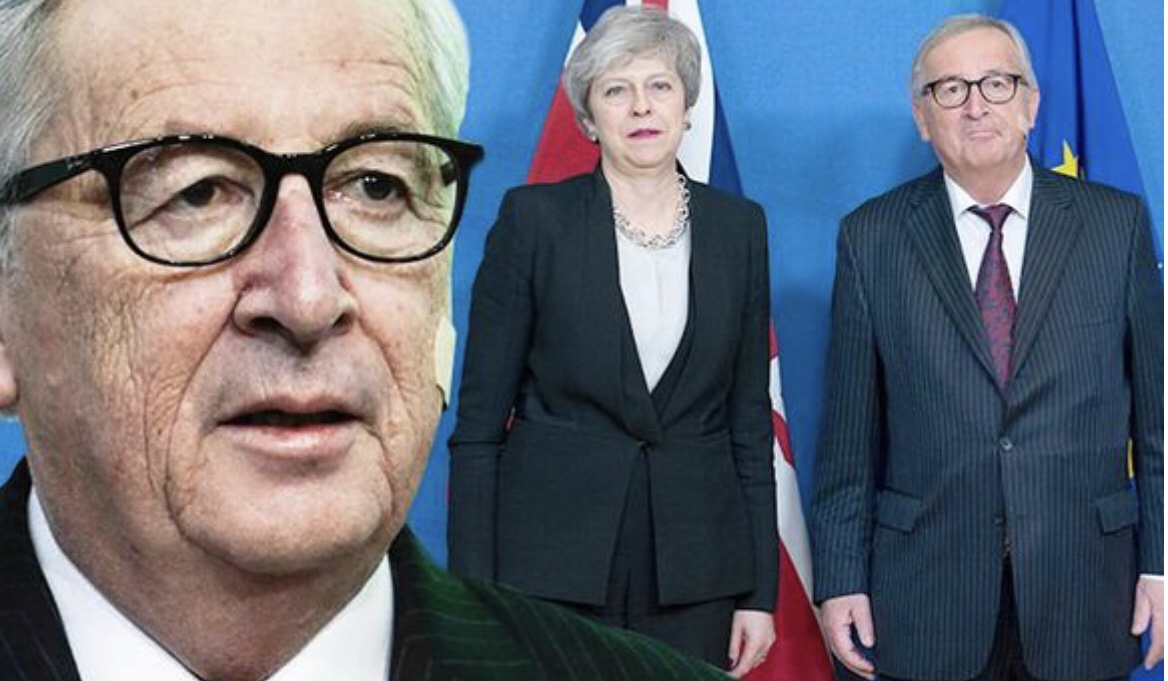Today it is 33 days to Brexit when United Kingdom leaves the European Union.

If nothing else happens before, 66 million Europeans – the population of UK – leave the EU on 29 March 2019 at 11pm.
There is naturally still a possibility that the Withdrawal Agreement (WA) – that has been negotiated – between the two parties can be approved by UK Parliament before the 29 March.
There will be a second Meaningful Vote in the House of Commons about the proposal. The date for the vote is still not decided. A few dates in this following weeks, 26 and 27 February have been mentioned as potential days for the vote, however it is not likely that the vote will happen this week.
PM May has said that she will present new information about the process this week. The clock is ticking. It will be difficult but I am positive. There are rumours about a new statement regarding the Irish back-stop for either the political statement or a third document. The key will be to find and articulate a legally binding comprimise around the back-stop in line with the Brady ammendment and its ‘alternative arrangements’. I am convinced that Malthouse and techniques/technology will have to be part of such a solution.
There are voices in the UK for asking the EU for a delay of article 50. This is for various reasons difficult for EU.

In the meantime preparations for a no-deal Brexit continues on both sides. A lot of temporary routines have been published, especially from UK Government in attempts to mitigate problems if this happens. It is important to note that it is highly likely that there will be major challenges regarding speed and predictability – there will be queues – in case of a no-deal Brexit. There will be tariffs and non-tariff barriers, both border formalities (like e.g. different types of declarations) and inspections.
What happens when we are fast travelling towards a date that we know will change everything?
More and more people are now realizing that this can actually happen.
It is essential that all companies involved in trade between UK and EU, do an individual analysis on the consequences. Be as prepared as possible.
And continue to read up on Brexit, here and in other places. We have another important and interesting week ahead of us.
This text published by BIFA – The British Freight Forwarders Association – provides an overview of the latest EU Exit information relating to UK borders from across UK Government.

Leaving the EU with a deal remains the Government’s top priority. This has not changed. However, the UK Government must plan for every eventuality including no deal. Without a deal, businesses may need to take action before 29 March 2019.
As intermediaries and trade bodies who work with UK businesses, the role that you can play in helping the UK Government reach out to businesses and individuals is crucial.
As well as using this bulletin for your own contingency planning, you can help us reach your clients, customers and members prepare by forwarding this email on or sharing the content via existing channels.
For more information, go to www. GOV.UK/EUEXIT
Phased approach for Entry Summary Declarations
The UK Government has announced plans to phase in pre-arrival forms for EU imports, known as Entry Summary Declarations, if the UK leaves the EU without a deal.
On Monday, officials held a series of meetings with organisations who represent the haulage industry and handle a significant portion of the UK’s cross border trade, to confirm that from March 29, the status quo will be temporarily maintained as they will not need to submit Entry Summary Declarations on imports for a period of six months.
Currently Entry Summary Declarations are not required when importing goods from the EU. They will continue to apply for trade from the rest of the world.
The measure is designed to give business more time to prepare for changes to EU-UK trade arrangements in the event that the UK leaves without a deal. This builds on the plans that Transitional Simplified Procedures (TSP) can be used for at least 15 months for customs declarations.
For more information, go to GOV.UK and use the Partnership Pack which has guidance for businesses on processes and procedures at the border in a no deal scenario.
Sector factsheets to prepare for EU Exit
If the UK leaves the EU without a deal, there may be changes that affect your business. The Department for Business, Energy and Industrial Strategy have published additional sector factsheets, to help you prepare for a no deal EU Exit. They bring together the top issues for each sector and provide overview guidance.
Factsheets are now available online for the following sectors:
- Aerospace
- Automotive
- Chemicals
- Construction
- Consumer goods
- Electricity
- Electronics, machinery and parts sector
- Oil and gas production
- Professional and business services sector
- Retail
- Science, research and innovation sector
Please forward these links to your stakeholders that work in these industries to help them prepare for a no deal EU Exit.
Updated guidance on import VAT on parcels if the UK leaves the EU without a deal
HMRC have published updated guidance on import VAT on parcels you send to UK buyers. If you are based outside the UK and sell parcels to UK buyers worth £135 or less, you must pay import VAT. Parcels include letters, packages, packets and any other article that could be sent by post, even if they are sent by different methods. To do this, HMRC has launched a new digital registration service for overseas sellers.
Go to GOV.UK for more information and to register for the service.
Fluorinated gases and ozone-depleting substances: how to do business if the UK leaves the EU without a deal
This week, the Department for Environment, Food and Rural Affairs (Defra) has published updated guidance on using and trading fluorinated gas (F gases) and ozone-depleting substances (ODSs) if the UK leaves the EU without a deal. As part of this, Defra has launched an IT system for businesses who produce or make products containing F gases and ODSs. If the UK leaves the EU on 29 March without a deal, these businesses will have to register on the new system by 12 April, which will replace the current process that controls emissions for all EU Member States.
This will enable the UK to continue its ambitious commitment to phase down the use of F gas by 79% between 2015 and 2030, to combat climate change.
More information about the actions businesses may need to take can be found in the additional guidance. Please share this with your partners and stakeholders.
Update to plant import/export guidance
Defra published updated guidance on plant imports and exports. The updated guidance specifically refers to firms trading in wood packaging material.
Source: BIFA
EU President Jean-Claude Juncker today revealed he is “not very optimistic” of securing a Brexit deal after crunch talks with Theresa May.
The European Commission president insisted that a lack of a parliamentary majority in London is at the heart of the deadlock. He bemoaned the lack of progress being made despite holding talks with the Prime Minister last night in Brussels. Speaking at a session of the EU’s European Economic and Social Committee, the eurocrat said there is still not a majority amongst MPs for a solution that can break the impasse.

Mr Juncker said: “If no deal were to happen, and I cannot exclude this, this would have terrible economic and social consequences in Britain and on the continent, so my efforts are oriented in a way that the worst can be avoided.
“But I am not very optimistic when it comes to this issue.”
He added: “Because in the British parliament every time they are voting, there is a majority against something, there is no majority in favour of something.”
Last night, Mrs May told the Commission boss that she required “legally binding changes” to the Irish backstop in order to win the support of MPs.
Her Brussels trip left officials no more confident that she will be able to guide Britain out of the EU with a deal.
A joint statement issued after the talks said the meeting was “constructive” and both leaders pledged to talk again before the end of the month.
Mrs May said: “Time is of the essence and it’s in both our interests that when the UK leaves the EU it does so in an orderly way.”
She revealed she affirmed “the need for us to see legally binding changes to the backstop which ensure it cannot be indefinite”.






You must be logged in to post a comment.